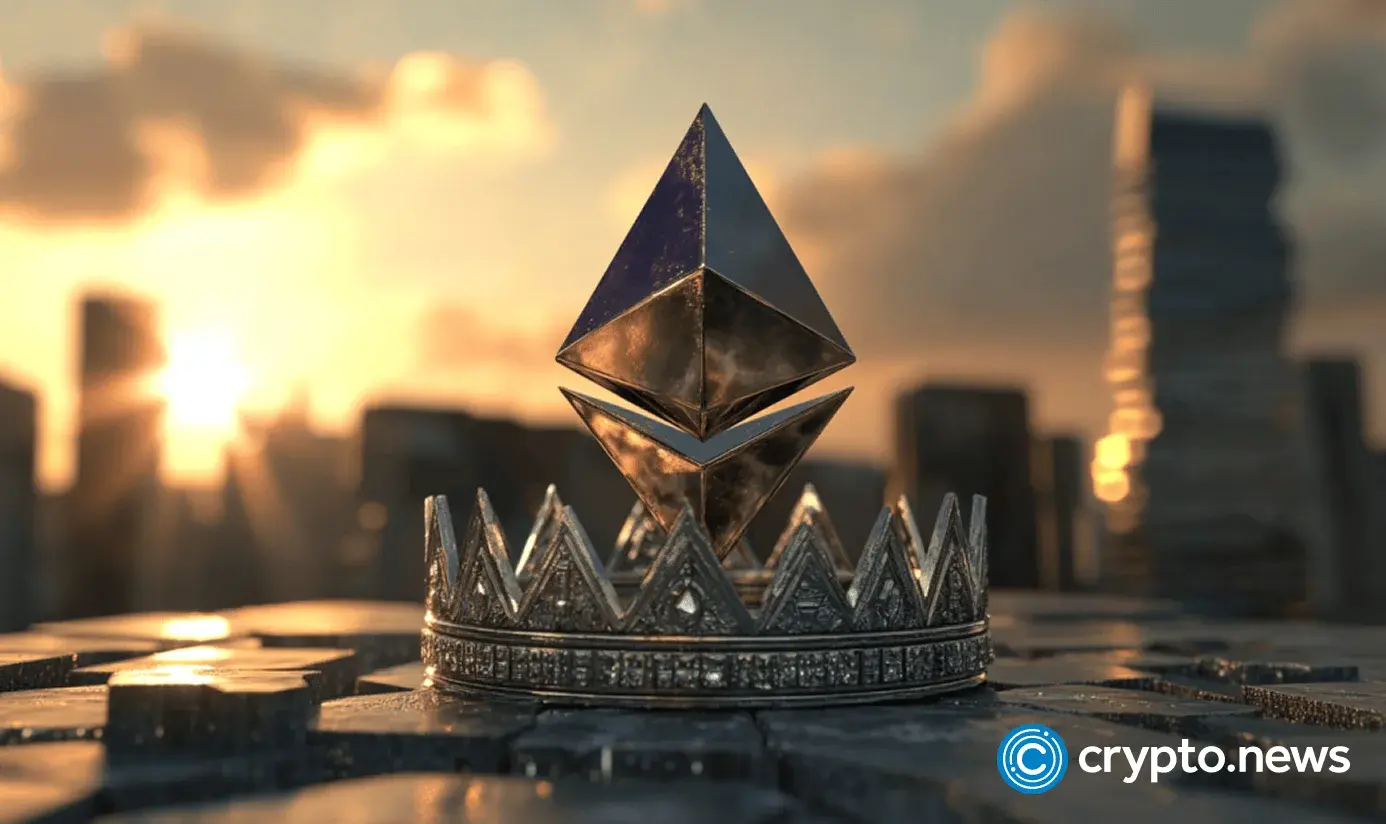Ethereum’s New Standard Positions It as the Core Infrastructure for RWA Tokenization

Ethereum just leveled up—transforming from digital playground to Wall Street's new backbone.
The protocol's latest upgrade introduces a standardized framework for real-world asset tokenization, finally giving institutional players the rails they've been begging for.
Why It Matters
Forget speculative NFTs—this is about trillions in real estate, commodities, and traditional finance assets moving on-chain. Ethereum's smart contract capabilities now support compliant, interoperable tokenization that actually meets regulatory scrutiny.
Traditional finance firms get to pretend they're innovating while finally catching up to what crypto natives built years ago. The irony? Banks will now pay gas fees to participate in the system they once dismissed.
This isn't just another tech update—it's the quiet infrastructure shift that could actually bring real-world value on-chain. Finally, something tangible beyond degenerate gambling and meme coins.
Ethereum preps for a massive market of tokenized RWAs
Tokenized RWA volume is growing at an increasing rate. Between Aug. 10 and Sep. 10, it grew by 6%, reaching nearly $28.4 billion. Such a rapid volume growth signals institutional appetite for tokenized assets. However, the technology lacked a handy solution for the seamless settlement of tokenized securities.
Brickken co-founder Dario Lo Buglio created Ethereum Improvement Proposal 7943, or EIP-7943. It’s an implementation-agnostic framework that allows the use of any token types.
The new standard aims to solve the blockchain interoperability problem by eliminating the need for custom bridges and wrappers. The apps will allow direct operations with different token types. This new foundation may open the gates for streamlined global trade of tokenized real-world assets.
Unlike preceding standards, the new ERC will apply to any tokens regardless of the way they are built. If the standard works as intended, it will halt the market’s fragmentation and accelerate the tokenized RWA era.
Brickken, Forte Protocol, DigiShares, Dekalabs, FullyTokenized, and Bit2Me are among the companies backing EIP-7943.
📢 We’re proud to be part of a coalition of leading RWA platforms supporting ERC-7943, a new open standard for institutional-grade tokenization.
Our Co-Founder & Head of Blockchain, Dario (@xaler2 ) , in collaboration with a senior researcher from @OpenZeppelin , co-authored… pic.twitter.com/BlBN7F1evw
CCN cites Dario Lo Buglio saying:
“Institutions have struggled to meet compliance requirements with blockchain’s open architecture. ERC-7943 bridges that gap. Its modular structure makes integration seamless, and the shared community support gives us the confidence to go live with production-level RWA use cases.”
More businesses are implementing tokenized RWA trading
Companies and institutions, including such heavyweights as BlackRock, Nasdaq, and Binance, don’t wait for Ethereum’s solution but already work to provide their clients avenues for trading tokenized securities and ETFs.
In May, Swiss company Backed Finance initiated the release of xStocks, tokenized U.S. assets. xStocks are built on solana and can be traded on several platforms united into xStocks Alliance, bypassing traditional brokerages. xStocks are not available for trading in the U.S. In six weeks, the xStocks volume on Solana exceeded $2 billion.
The same month, Robinhood Markets and BlackRock made their respective announcements. Robinhood revealed it is working on a solution that will allow its users to trade Arbitrum-based tokenized securities. BlackRock introduced the tokenized version of its money market fund BUIDL. The product was made in collaboration with Securitize and is 1:1 backed by BlackRock’s BUIDL.
The tokenized securities trading era is coming. If we look at the headlines of the last several days alone, we’ll see that big players are working hard to make it happen:
- The world’s biggest crypto exchange, Binance, joins forces with $1.6 trillion investment management firm Franklin Templeton to launch new products associated with blockchain and regulated tokenized assets.
- Nasdaq’s plans to allow tokenized equities trading, too. It announced a filing with the Securities and Exchange Commission on September 8.
- On Sep. 10, Kraken announced the launch of xStocks trading for EU residents.
Without a doubt, we’ll see more similar news in the following months.
What changes will come mass tokenization?
Lily Liu (@calilyliu) explains why the stock tokenization trend will continue to accelerate 🪙 pic.twitter.com/sWHIqNScVs
— Solana (@solana) September 9, 2025As RWA tokenization gains momentum, several key changes will follow. Stocks and ETFs will become more accessible, traded 24/7, with cheaper and faster settlements. Intermediary risks will decrease, unlocking new opportunities for traders and investors to tap into the $257 trillion market using innovative tools.
As Solana Foundation President Lily Liu noted, blockchain solutions are transforming the financial sector for the Internet age, driving the tokenization trend forward.
This shift is prompting policymakers to focus on regulating tokenized assets. In July, SEC Chairman Paul Atkins called tokenized RWAs innovative, while Commissioner Hester Peirce emphasized that tokenized securities must still comply with securities laws. Some U.S. companies are already testing in the EU, but as the U.S. develops its regulations, it will likely help streamline the sector’s growth.

